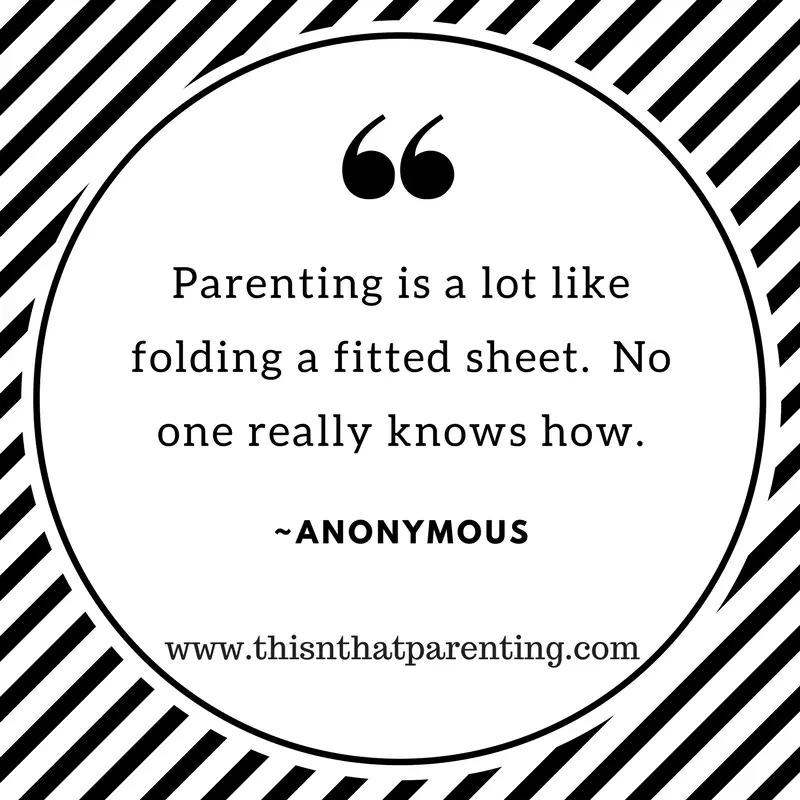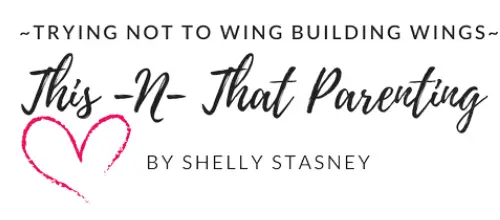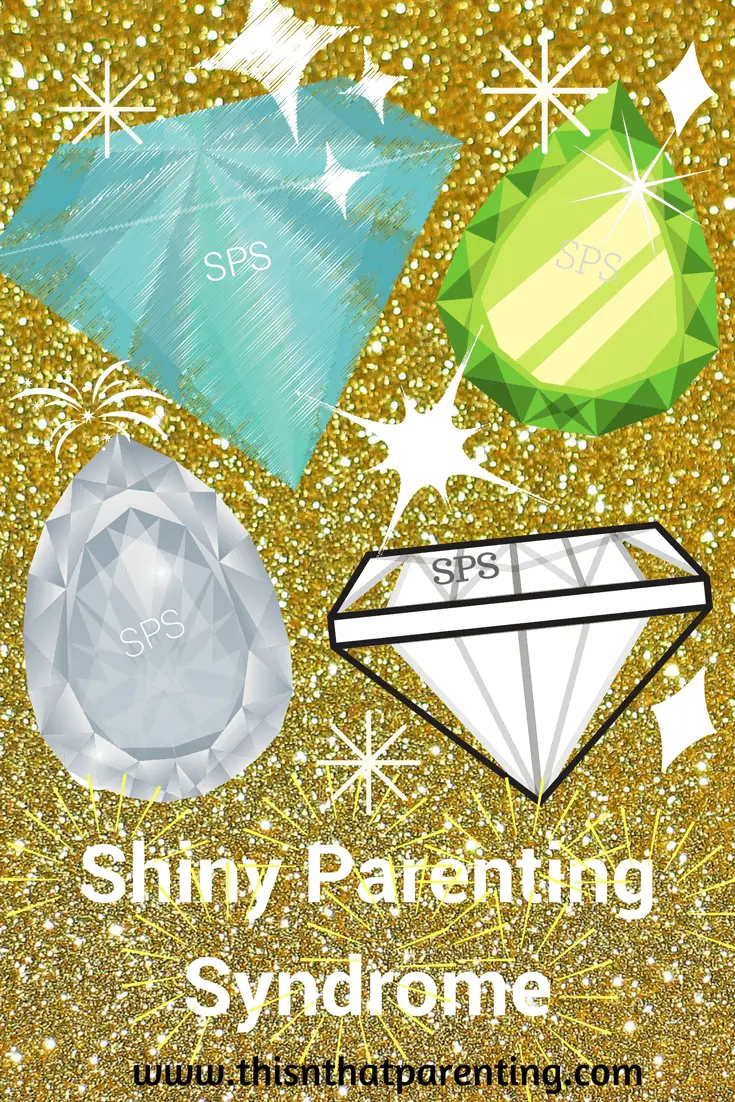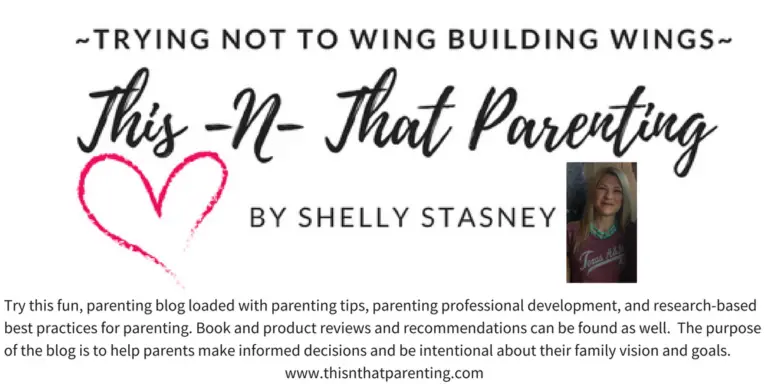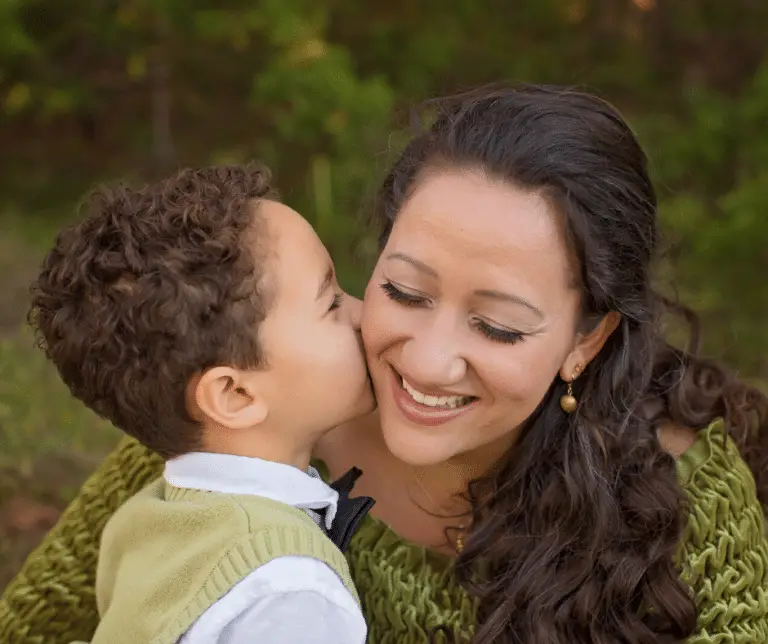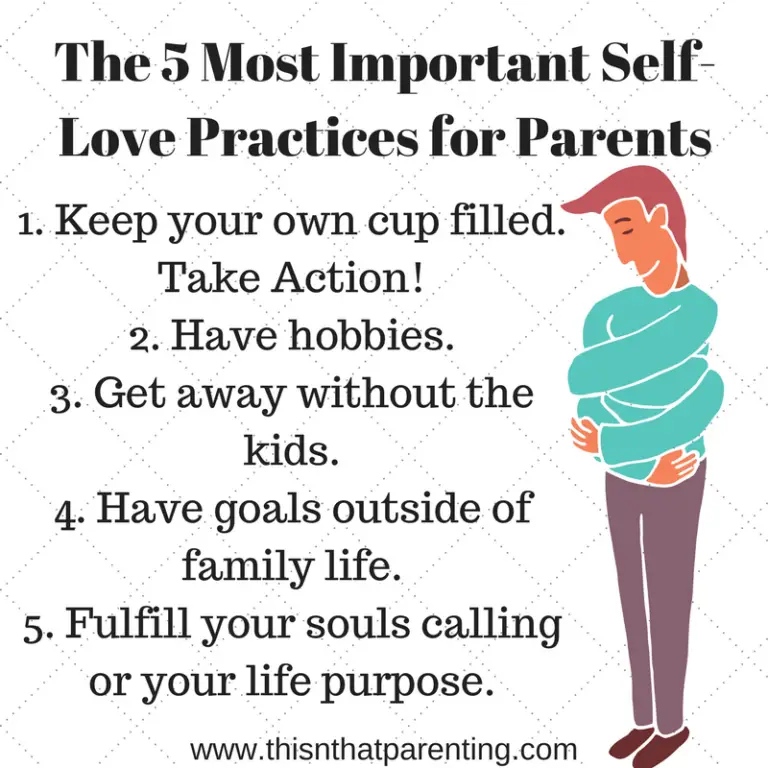Do You Have Shiny Parenting Syndrome? Find the Cure Here!
With all of the parenting information that you have access to, it is super easy to acquire Shiny Parenting Syndrom (SPS). [By the way, I’m thinking I coined this term taken from shiny object syndrome in the business world.]
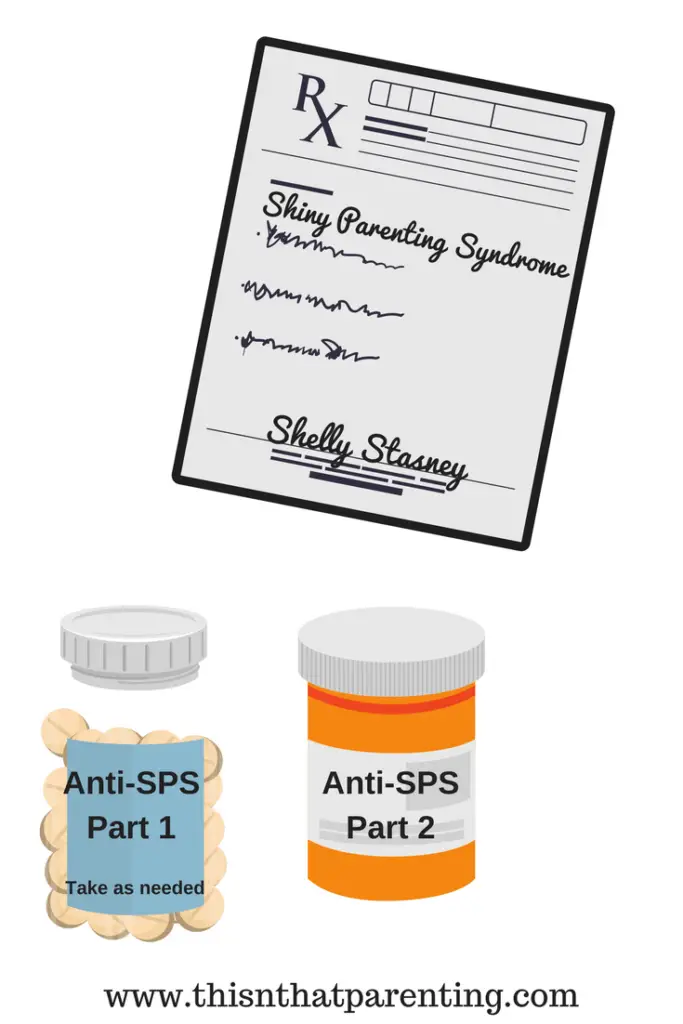
Shiny Parenting Syndrome Defined
Shiny Parenting Syndrome is when you are constantly trying the latest and greatest techniques and practices to try and create the family you desire or try to get your kids to behave in the manner you prefer.
There should be no guilt or shame if you diagnose yourself SPS positive. It is contracted with good intentions. Of course, you want to do the very best for your children.
The fear of failing drives you to think that you need to know more, do more, learn more, be better prepared, and have the right terminology. Due to the constant change in parenting styles and methods, the latest and greatest idea turns out to be no more achievable than the last method.
These “shiny objects” are not really objects per say, but they are ideas that parenting “experts” present. The methods sound like they get better results than what you are currently doing. It never feels like your getting anywhere on your methodology because your continuously starting over with new techniques.
Another problem that occurs is that the baby is often thrown out with the bathwater because there are only so many hours in a day with our children. Space must be made for these new ideas or extracurriculars. Therefore the previous family system and important family time get replaced.
How do I know? Why did my brain light up with Shiny Parenting Syndrome when I read the definition of Shiny Object Syndrome? Because I have been there, and there are desperate moments when I get another outbreak.
Any of this sounding familiar to you, or am I the only one who has ever contracted SPS?
Researching Parenting Ideas is NOT Always Bad
Before I go on, I do want to clarify that I do not at all think it is a bad idea to research parenting methods. This, in fact, is my favorite topic of study. There are many reasons to research new ideas and strategies.
- You want to do things differently from your parents.
- You’re like me and you have very little experience or knowledge of what to do with a 0-18-year-old.
- What you have been doing for quite some time has not worked, so you want to find out about other methods.
- Something in your family comes up that you have no experience with or have never heard of. (God knows there are some things no one told me about!)
- New research is constantly bringing improvements to the “profession”.
- It is important to know the stages of development for children.
External Influences
What I’m describing is seeing and hearing ideas on social networks, search engines, Pins, Tweets, playdates, mommy friends or any of the like and trying it even though your method isn’t broken. The source makes everything seem so kumbaya. Fear, doubt, and anxiety creep in and steal your confidence.
“Should we join Boy Scouts and play T-ball too?”
“Oh my, our kids have a playroom full of toys. Should we donate 90% of them and join the minimalist movement?”
“Do we need to make him sit at the table until we all finish eating?”
“Should we quit taking turns putting them to bed and both put them to bed?”
Take These Actions to Fight Off Shiny Parenting Syndrome
I have found a cure or rather a methodology that fends off Shiny Parenting Syndrome. I’m going to share the prescription. There are two parts to the prescription. Take daily as many times as needed.
Part 1
I think of it as a metaphor. Consider that all of the information that you absorb goes into a colander. The information that does not match your family culture goes out and down the drain. The information that does match your family culture gets to remain in the colander for further investigation to see if it is sifted out or adopted.
For the above prescription, define culture as the family values, norms, and rituals and traditions. Define those as:
- Values give a family an overarching purpose and guide as to how each family member acts and behaves in different situations.
- Norms are the spoken and unspoken rules of how a family operates. Norms guide how family members interact with one another and with the outside world.
- Rituals and traditions are a set of behaviors and routines that provide a family a sense of identity and purpose.
This is the way every successful organization whether it be business, school, or family operates. You’re either a cohesive team all striving towards the same SMART goals or you’re all floundering on your own trying to create your own path to winning. Grabbing at every shiny object.
Every member of your family has to know the values, norms, and traditions and the plan for implementation in order to achieve success. Whether you inform your kids of a family culture or not, they form a family culture by studying your actions.
You have to be very intentional about creating a family culture and work hard to maintain it. A culture created by always being in default mode will produce mediocre results. It is easier to want to take the safe path. It is normal to want to fit in, but you do whatever it takes (which is usually a lot of hard work) to achieve the results you wish to see in your family.
Part 2
Have a list of go-to resources that resonate with your family culture. This list should include books, websites, podcasts, people and friends, and your religion resources. These are the resources you give most of your time when looking for answers or discussing your family. You can see my list here. A List of Parenting Resources: The Best of the Best
Once you put this into effect, you don’t have to worry about a lot of distractions taking you down a rabbit trail.
WARNING
I want to warn that SPS is contagious, and I have been guilty of spreading it before I diagnosed myself. I would get with my mommy circle and tell them the latest and greatest of what I read. If one of them would share an issue from their family, I would return with, “I read you should…”.
Therefore, I call this a Parental Transmitted Disease (PTD). I’ll give you a few more ways I’ve found to “protect” myself!
Again there is nothing wrong with this to a certain extent. But we can’t change things up in our family weekly. We do not want to be a loose user of transient methods. I thrive off of conversations about parenting, and I’m on fire every time I meet someone else who enjoys the topic as well. Throw in a little education and product recommendation talk and my parenting juices really get to flowing.
After I diagnosed myself with SPS, I came to realize I need to:
- be mindful of my talk in the conversation.
- pray about the conversations before they take place
- be conscious of what I take from the conversation
- do more rinse and repeat instead of trying something new.
- practice a little more if it’s not broke don’t fix it-ness.
Call to Action
Communication about the family culture between the parents and then the parents and children is the ultimate defense against SPS. Once every family member is aware of the culture, you strive daily to align your actions to stay true to it.
Be intentional.
Want More On Connection?
- Become A YES Parent. 5 Simple Ways To Say YES More Often
- The Impact Of The Way We Talk To Our Child Is Mind-Blowing
- 5 Habits To Ensure You Keep Your Word With Your Child
- The Art Of Being A Present Parent
- 10 Smart Ways To Give Your Child Choices And The Benefits
- Children Will Never Forget How You Made Them Feel
- 8 Shocking Truths About Teenage Brain Development Every Parent Must Know
- Self-Fulfilling Prophecy: Children Will Become What You Say They Are
- A Family That Laughs Together Stays Together- 100 Jokes To Make Your Kids Laugh
- The Importance Of Creating I Love You Signals For Your Children
- Do You Have Shiny Parenting Syndrome? Find The Cure Here!
